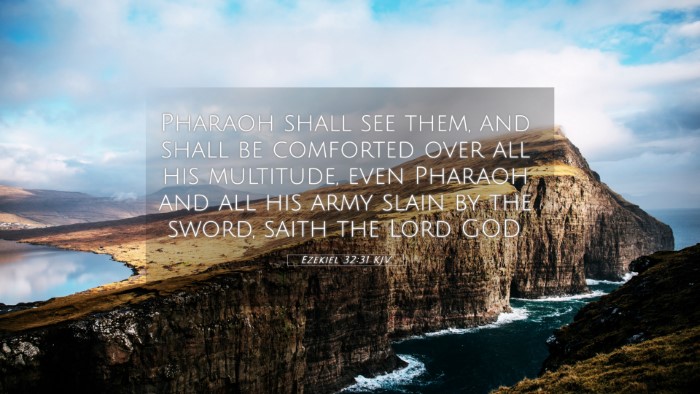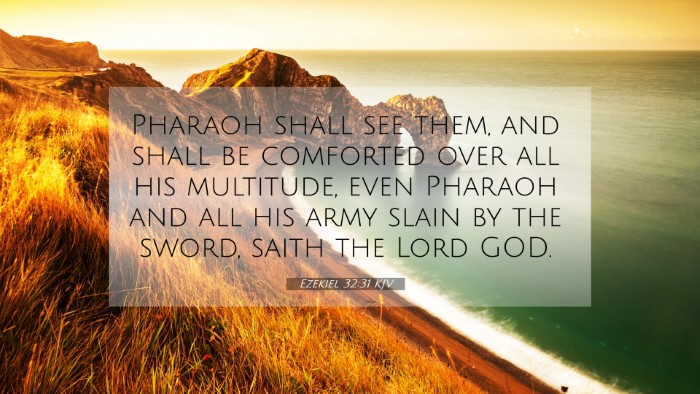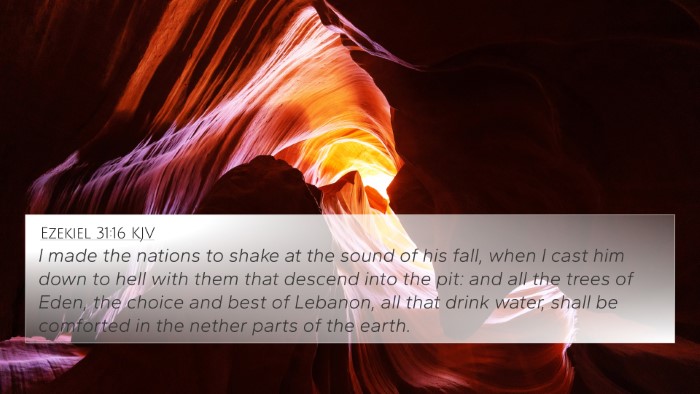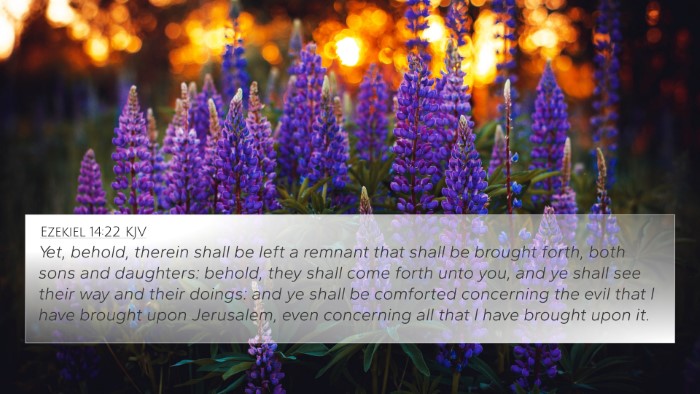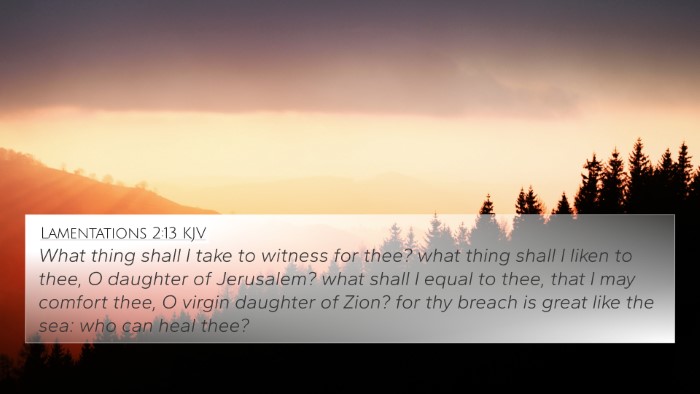Ezekiel 32:31 reads: "Pharaoh shall see them, and shall be comforted over all his multitude, even Pharaoh and all his army slain by the sword, saith the Lord GOD."
This passage brings a powerful message concerning the fate of Egypt and its leader, Pharaoh. Let's explore its meaning and implications as drawn from public domain commentaries.
Summary of Key Insights
The verse is part of a broader prophetic declaration made by Ezekiel. The chapter serves as a lamentation over Egypt, marking a significant moment in biblical history where God's judgment is pronounced against nations that stood in opposition to Him.
Contextual Understanding
Ezekiel prophesies in a context where nations surrounding Israel, including Egypt, are facing severe consequences for their idolatry and pride. Pharaoh, as the representative of Egypt, embodies the collective defiance of the nation against the sovereignty of God.
Theological Insights
Matthew Henry’s Commentary emphasizes that God's judgment includes a recognition of the enemies of Israel. Pharaoh's view of his fallen army illustrates a false sense of comfort amidst defeat, highlighting the delusion of leaders who trust in their might rather than God.
Adam Clarke’s Commentary elaborates on the irony present in the passage. Instead of seeing victory, Pharaoh is comforted only by the fact that he is not alone in defeat; his multitude faces death alongside him. This serves as a reminder of the ultimate futility of opposing God's purpose.
Albert Barnes’ Notes on the Bible adds the perspective that Pharaoh will encounter a grim realization as he sees the destruction not just of Egypt's strength but also the totality of their failure before the God of Israel. This serves as a lesson for all in positions of power.
Connections Between Bible Verses
This verse can be cross-referenced with several significant other verses that deepen its understanding:
- Isaiah 19:1 - The prophecy against Egypt which highlights the coming judgment.
- Jeremiah 46:25 - This verse also addresses the judgment on Egypt in the context of their idolatry.
- Ezekiel 30:10 - Additional context of the destruction that awaits Egypt, reinforcing the theme of divine judgment.
- Exodus 14:30-31 - The defeat of Pharaoh’s army at the Red Sea serves as a historical parallel to Ezekiel's lament.
- Revelation 18:2 - The fall of spiritual Babylon parallels the fall of Egypt, showcasing the ultimate defeat of opposing powers.
- Psalm 76:5 - Acknowledges God’s power and the loss of might among his enemies.
- Ecclesiastes 9:3 - Reflects on the fate of humanity and the common destiny of all who oppose God.
Comparative Analysis
By comparing these verses, we draw thematic connections that inform our understanding of God’s justice. The messages convey that reliance on human power is ultimately futile, and God's sovereignty prevails over the nations.
Thematic Connections
The themes present in Ezekiel 32:31 echo throughout scripture. The broader theme can be identified as the judgment against pride and idolatry, which remains relevant across both the Old and New Testaments. The connection between human leaders' failures and divine sovereignty is a consistent narrative in biblical literature.
Using Cross-referencing Tools for Deeper Study
For individuals studying this verse, utilizing cross-reference Bibles or Bible concordances can significantly enhance understanding. Tools such as these allow for exploration of the various themes that resonate across scriptures, providing a deeper insight into the coherence of the Biblical narrative.
Additionally, methods like cross-referencing Bible study and identifying connections between Old and New Testament can provide valuable insights into the continuity of God's message through various authors and eras.
Practical Applications
Understanding Ezekiel 32:31 through the perspectives of multiple commentaries and cross-references equips believers with a robust framework for Bible verse interpretation.
As you prepare for sermons or studies, leverage comprehensive Bible cross-reference materials to solidify your themes and messages. Explore inter-Biblical dialogues as a means to understand better the living word and its applicable insights within your community.
Conclusion
Ezekiel 32:31 serves as a poignant reminder of God’s judgment and the consequences of relying on worldly powers. Through careful study and cross-referencing with other biblical texts, we uncover deep insights that provide clarity and relevance for today's believers. The journey of discovery in scripture is ongoing, thriving on the connections between verses and the eternal truths they reveal about God’s character and justice.

